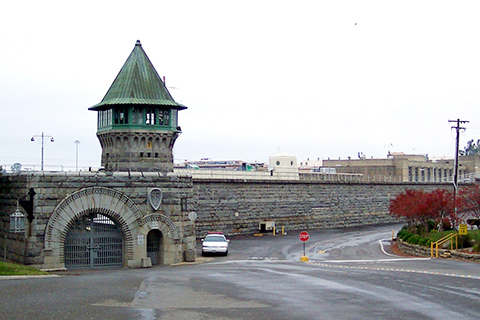Feature Archives
Mon Jun 26 2017 (Updated 06/28/17)
Tracking Twenty Years of Stockton Killings by Law Enforcement
This timeline mapping state violence in Stockton, CA was collectively generated as part of a larger ongoing convivial research effort to expose low intensity war across the Bay Area and state. The timeline was produced through a collaboration between the Center for Convivial Research and Autonomy (CCRA) and the efforts of families and grassroots groups in Stockton and beyond. It is a tool that remembers, counts, mourns and honors our dead. The timeline is a collaborative effort of documentation over time that makes visible the many resistances that have refused erasure.
Mon Jun 5 2017
The Epic Battle Between Big Oil & the People of California
On Thirteenth Street in front of the Sacramento Convention Center where the Democratic Convention was being held on May 20, a group of activists held a mock “tug of war" between the people of California and the oil industry for the loyalty of Governor Jerry Brown. The skit depicted the contradiction between Jerry Brown the “climate leader,” who appeals to his Democratic base by preaching against climate change and for green energy, and the other guy, “Big Oil Brown,” who supports the expansion of fracking in California and the construction of the Delta Tunnels — and has received millions in contributions from the oil and energy industries.
Thu May 25 2017 (Updated 06/22/17)
Hunger Strike Begins at Folsom State Prison
The men at Old Folsom State Prison in the ASU and Ad-Seg will begin a hunger strike on May 25 due to ongoing issues with the conditions of confinement that violate the Eighth Amendment. All the prisoners held in Folsom’s ASU and Ad-Seg are without food bowls, therefore having to eat out of ziplock bags. They have no cups, needing to drink water from an old milk carton. They have no TVs, no property at all. The mail is sometimes withheld for no reason — up to a month for some prisoners, for others even longer. All they’re asking for is to be given day-to-day necessities. So, in order to have their voices heard, they feel they have no choice but to hunger strike.
A new study released by the Lawyers’ Committee for Civil Rights of the San Francisco Bay Area, Paying More for Being Poor: Bias and Disparity in California’s Traffic Court System, shows that Californians pay some of the highest fines and fees in the country — more than three times the national average for running a red light. And new Bay Area data reveals that African-Americans are four to sixteen times more likely to be booked into county jail on a charge related to inability to pay a citation. Two bills before the California Legislature (SB 185 and AB 412) seek to address many of the disparities
Fri May 5 2017 (Updated 05/16/17)
Reclaim Our Democracy from the Oil Industry
California is often portrayed as the nation's “green leader,” but the reality is much different. Over the 2015-2016 Legislative Session, the oil industry spent a historic $36.1 million to lobby California lawmakers. During the last six years, the industry has spent $122 million in Sacramento, more than any other interest group. “This spending spree has paid huge dividends for these companies, allowing them to dismantle and crush any meaningful legislation that might significantly curb their power to drill and pollute in California,” said David Braun of Rootskeeper. Braun urged people to join a diverse array of activists on Saturday, May 20 for a march and rally in Sacramento.
Wed Apr 26 2017 (Updated 05/01/17)
Shut It Down May 1st: Respect Our Humanity
Oakland Sin Fronteras writes: International Workers' Day has been a time to uplift the struggles, honor the sacrifices, and celebrate the triumphs of working people across the world. As we stand on Ohlone Indigenous land this May 1st, we march in celebration and in resistance, and in solidarity with working people across all borders, to continue the historic struggle against economic and social inequity. With a Trump administration in power, a rising fascist tendency, and growing economic and political oppression of people everywhere, this May Day we march in the spirit of organizing and defending our communities from state violence and capitalist exploitation, and toward liberation and self-determination.
Tue Apr 18 2017 (Updated 04/23/17)
Tax Day Protests Demand Trump Release His Taxes
During the 2016 presidential campaign, Donald Trump said he would release his taxes, but that he couldn't until a supposed IRS audit concluded. Trump continues to refuse to release his tax returns, despite mounting questions regarding conflicts of interest and how much he might be beholden to those representing foreign powers such as Russian oligarchs. Protesters gathered in over 150 cities on April 15, the traditional tax filing deadline, to demand that Trump release his taxes. In Northern California, Tax Day protests were held in Santa Cruz, Palo Alto, San Francisco, Walnut Creek, Sacramento, Santa Rosa, Ukiah, and other cities.
Central Valley:
 12
12









